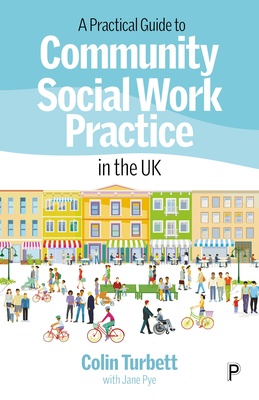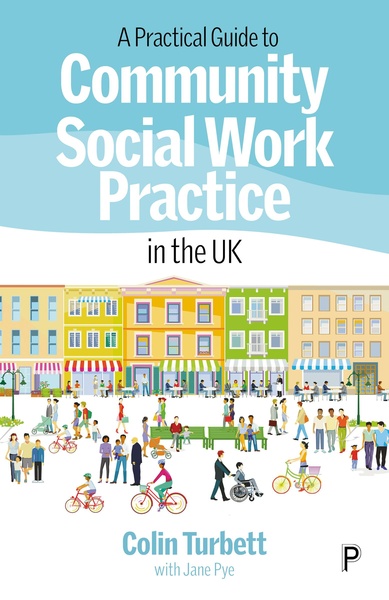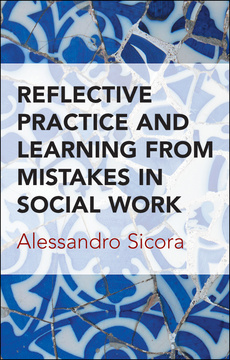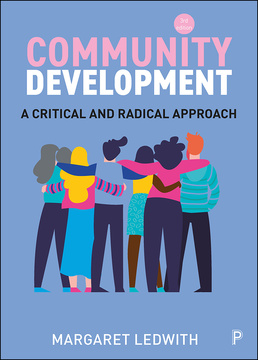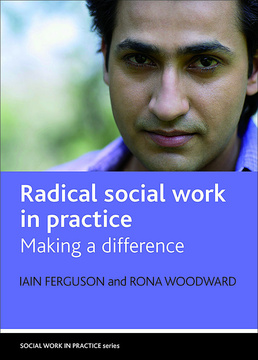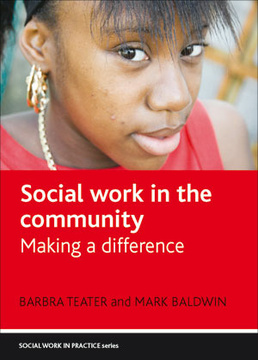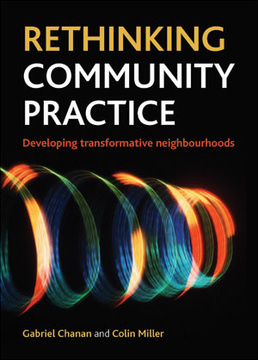A Practical Guide to Community Social Work Practice in the UK
By Colin Turbett With Jane Pye
Published
Sep 3, 2024Page count
192 pagesISBN
978-1447370994Dimensions
216 x 140 mmImprint
Policy PressPublished
Sep 3, 2024Page count
192 pagesISBN
978-1447371007Dimensions
216 x 140 mmImprint
Policy PressPublished
Sep 3, 2024Page count
192 pagesISBN
978-1447371007Dimensions
216 x 140 mmImprint
Policy PressThere has been a rebirth of interest in bringing community back into social work, but what does community social work mean when applied to practice? What are the opportunities in a landscape dominated by shrinking budgets with their attendant procedural and risk-obsessed assessment and care management models?
In this accessibly written book, Colin Turbett explores the erratic history of community social work. He goes on to demonstrate through contemporary examples how this preventative and relationship-based model can work for the individuals and communities served, and also provide an answer to the recruitment and retention issues adversely affecting mainstream settings.
“This text is timely and important. It is a significant contribution to reclaiming and reinstating a community focus and foundation within social work policy and practice. The challenge is to move community from the margins of pilots and projects and back into the mainstream of how social work develops and is delivered. Let’s go for it!” Ray Jones, Emeritus Professor of Social Work, Kingston University and St George’s, University of London
“An accessible, refreshing read. Influential and necessary to change the tide.” Kathryn Young, University of Dundee
“A timely and authoritative call for community social work to be at the forefront of practice. Highly recommended.” Steve Rogowski, independent scholar, author and former social worker
“A compelling and comprehensive case for rejecting stigma politics for a social justice perspective by putting community firmly at the heart of social work practice. Read it urgently!" Margaret Ledwith, University of Cumbria
“I believe that social work is at its most helpful when it is grounded in a belief in people. That natural connections across community and family underpin people’s sense of self value, identity, and autonomy. Turbett’s concern with collective solutions to structural inequalities such as poverty and isolation reminds me that I am not alone. That the reductive definition of social workers as assessing machines is one we reject as a profession. In place, Turbett argues with passion for de-individualisation of practice and relational autonomy with its roots in the strength of the communities social workers serve. Arguing that answers lie within collectively of response, Turbett is an outstanding sociologist who brings together political divisions in society and provides social workers with demonstrable and workable solutions. Community social work is not a luxury; it is the essence of what public service across health and social care should be.” Elaine James, Department of Adult Social Care, Bradford Metropolitan District Council
Colin Turbett is a retired social worker and active author based in the West of Scotland, with an interest in radical practice. He is an active member of the Common Weal think tank Care Reform Group, and the trade union Unison Scotland’s Social Work Issues Group. He has supported various local authority initiatives promoting community-based practice, including that of Fife Council.
Jane Pye is a Lecturer in Social Work at Lancaster University.
Introduction
1. A history of community social work in the UK
2. Bringing community into mainstream social work
3. Community social work for the present era
4. Policy drivers and relevant legislation in the UK
5. Scotland: Fife Council’s community social work team
6. Northern Ireland: Clarendon Medical Practice’s multi-disciplinary team – from ‘Healthy Connections’ to ‘Strengthened Connections’
7. Wales: examples of community orientation and community social work from Carmarthenshire and Torfaen
8. Community social work with a marginalised minority ethnic group: Gypsy and Traveller communities in England
9. Learning from contemporary experience: reflections on the examples from across the UK
10. Climate change and community social work
11. Community social work within social work education - Jane Pye
12. Conclusion: the future of community orientation and community social work







